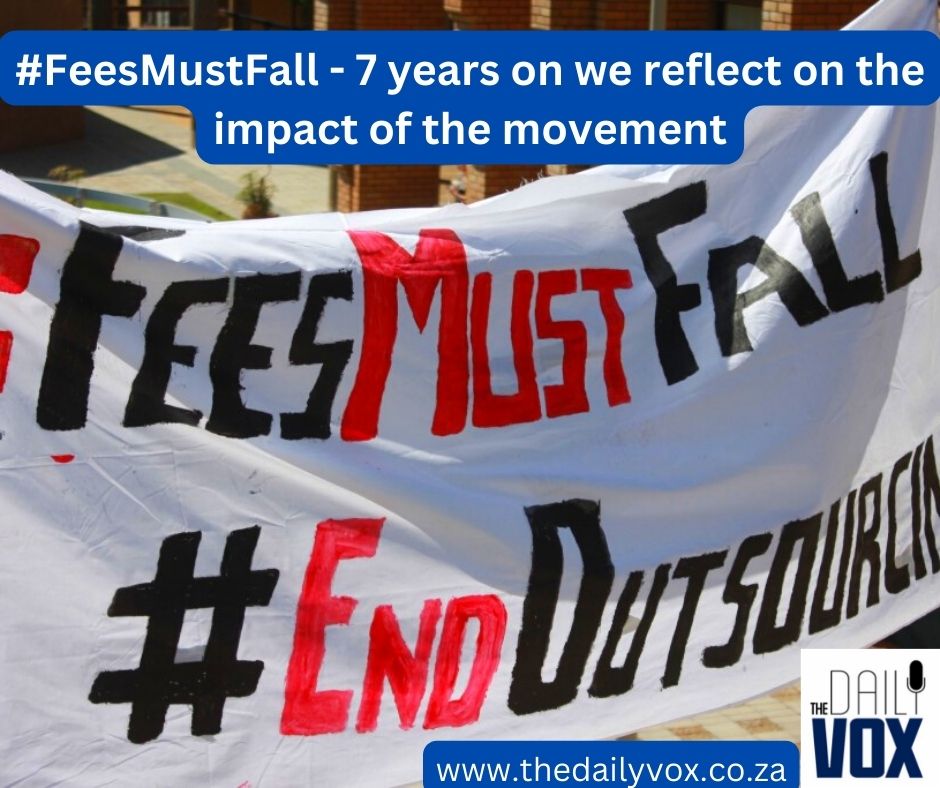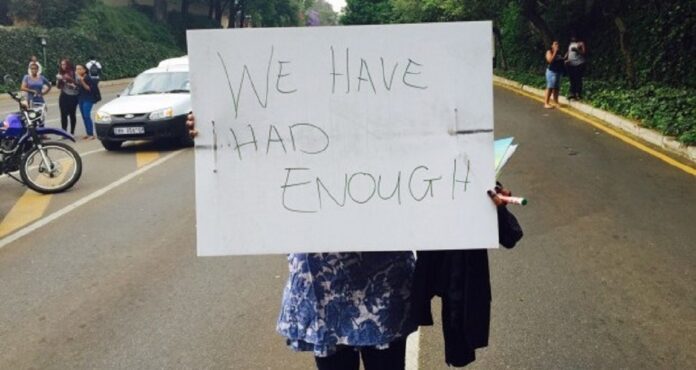South Africa has been host to many protest and students uprisings – both in the apartheid era and the infamous post-apartheid rainbow nation era. Protests fueled by injustice, racism and inequality with a response of violence on both black young and old bodies by the state. The 1976 generation, as young as they were, took to the streets to confront a racist government, sacrificing their well-being and lives. One can never deny what happened in Soweto and other parts of South Africa left a legacy of resistance against any unjust system.

This piece forms part of a series of reflections on the #FeesMustFall movement.
RELATED:
Special editorial: The Wits protest is not just about university fees
The popular view is that protest action is always filled with violence, disruption and unlawfulness. However, the 1976 students demonstrated a peaceful protest but were met with police who opened fire on the students, killing many and injuring even more. We live with the painful history through the existing documented images and storytelling of police brutality firing at and arresting students in our memories. Only four decades later, we bore witness to the rise of a similar student movement in a more modern era – the birth of #FeesMustFall.
The Fees Must Fall movement was formed by students in response to the 10.5 percent fee increase proposed by university management at various tertiary institutions across South Africa. The movement also brought attention to the Fallist movement, a movement that advocated for decolonisation beyond Free Education particularly in historically white institutions. Students in various institutions also advocated for the insourcing of workers in institutions of higher learning through the #EndOutsourcing sub-movement.
RELATED:
In defence of fallism: A response to #FeesMustFall critics
Many students including myself started questioning my own thoughts, values and ideology around that time. The connection between my Pan Africanist, black radical feminism and black consciousness school of thoughts all seemed like more of a struggle I was prepared to fight for.
As an undergraduate at the time enrolled at the Tshwane University of Technology, Soshanguve Campus – popularly referred to as the “ Republic of Soshanguve Campus” around student structures and comrades, one can never ignore the social and economic inequities that continue to characterise a historically black institution.
RELATED:
#TUTvoices: Students open up about why they want to study
Like various institutions e.g Rhodes through the #RhodesMustFall, the decolonial struggle for many TUT students had long started before the Fees Must Fall movement was formed. Protest for funding, well resourced education and proper infrastructure and technology had been a struggle in almost all the University Campuses. The media does the work of painting Soshanguve campus activists as unruly and violent ignoring the state and university brutality on students which triggers students to retaliate which at most times leads to militarised campuses and criminalised students. The arrest of comrades constantly serves as a ploy to demotivate, to disorganise and inflict fear on students about the frustration that comes with possibly having a criminal record.
Throughout the Fees Must Fall period, we lost two students while fighting for the basic functioning of the university. While many black students can access the institution, the many exclusions and frustrations experienced by black students is still very much evident.
Despite democracy, SA remains a colonial state that inflicts structural violence on poor Black South Africans daily. Class struggles in historically black and historically white institutions are at play, being a disadvantage and an advantage for the other.
A common ideology around comrades and different student structures has always been the Pan-Africanist school of thoughts. However, the radical feminist perpectives are never embraced and considered. The space entirely was one that focuses on male domination (Male comrades) to give clarity, lead and be the voice of the movement. The space was also violent to black women and the queer community, with so many women and queers excluding themselves from protesting and giving little to no attention to the movement.
The #PartriarchyMustFall movement, which first started at WITS and Rhodes University became very popular and loud amongst us few women activists on campus as we fought against being silenced and bullied into leaving the movement as men’s voices were prioritised in meetings. We sought safe spaces in the sub-movement to shift gendered views about leadership and legitimacy. The erasure and silencing of the women activists and the queer community coupled with misogyny in the movement undermined the effort of women activist in building the movement in Soshanguve Campus and the intersectional reality on the ground.
Oppression is not a single-axis issue; however, it is layered depending on one’s race, class, gender and other forms of political and social structures (Crenshaw, 1991).
Reviewing and rethinking the militarised masculine responses to institutionalised (State and university) violence embodied within FMF in particular my campus, and how this affected the movement internally has been a rather traumatic activity.
I can conclude that the road ahead for students is still a long one. However, one can not simply ignore the injustices of the past and how they have been preserved and protected causing further impact on the socio-economic status for many black students and families. The conversation around Land, decolonisation and inequality can no longer be postponed. It is a war that eventually deserves justice.
The views expressed in this article are the author’s own and do not necessarily reflect the editorial policies of The Daily Vox
Amanda Mavuso is an ASRI Fellow and intern for the social movement Equal Education. She has an undergraduate National Diploma in Public Management and a degree in Project Management from the Tshwane University of Technology. Amanda is currently doing her second degree in Public administration, governance and development at the University of South Africa. She has been part of student movements calling for an intersectional decolonial reality, such as #FeesMustFall and #EndOutsourcing. She hopes her activism will reflect on the daily lived experiences of her own people and serve as an act of solidarity.









